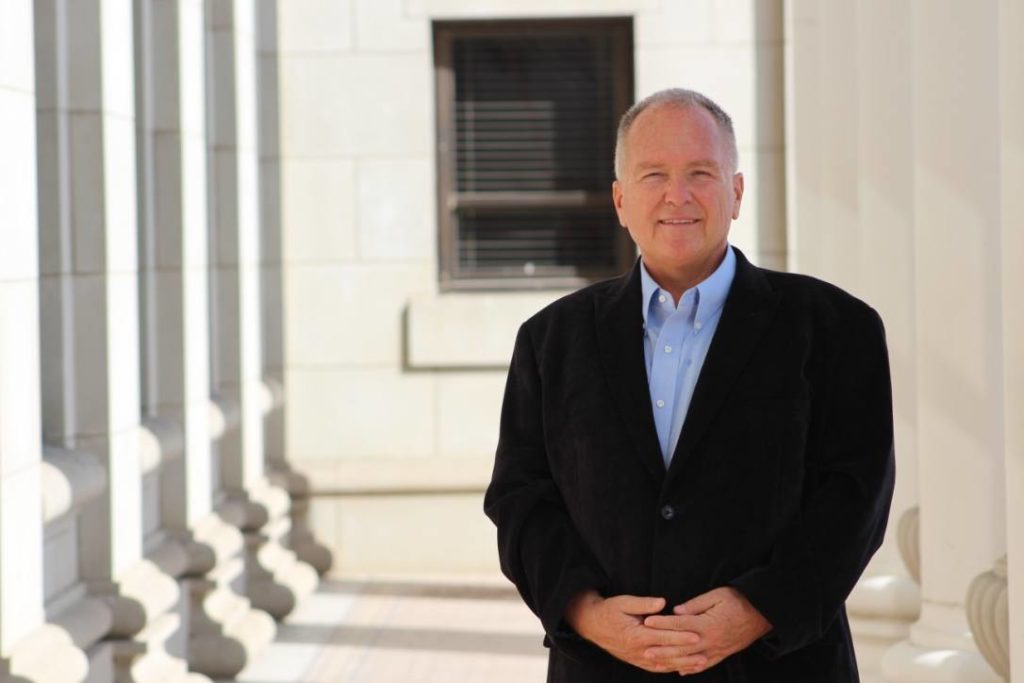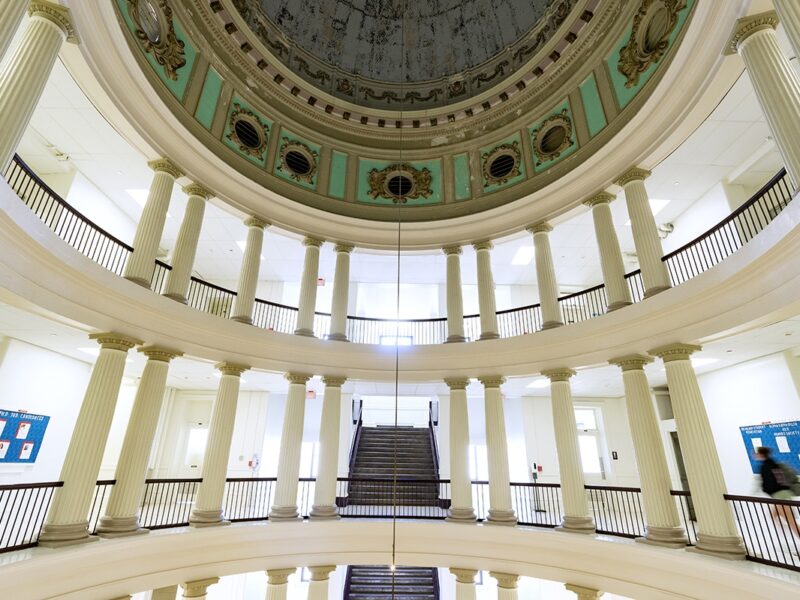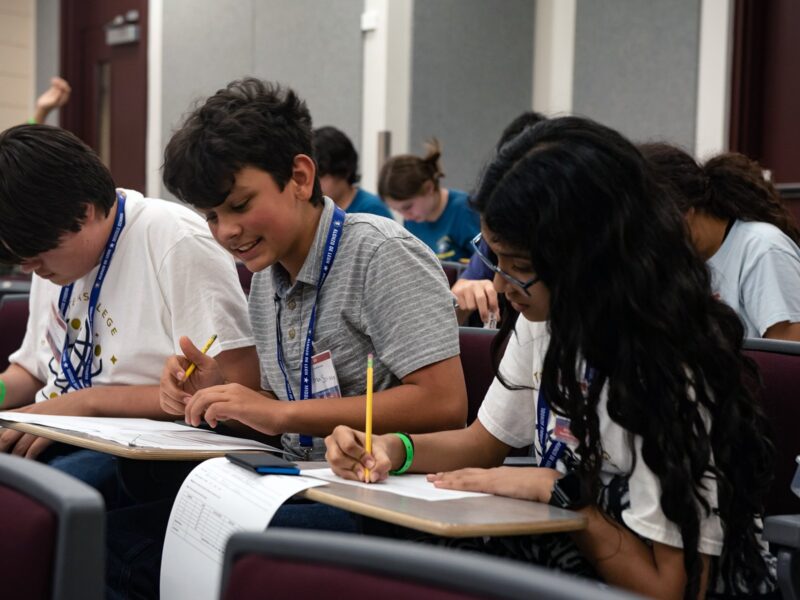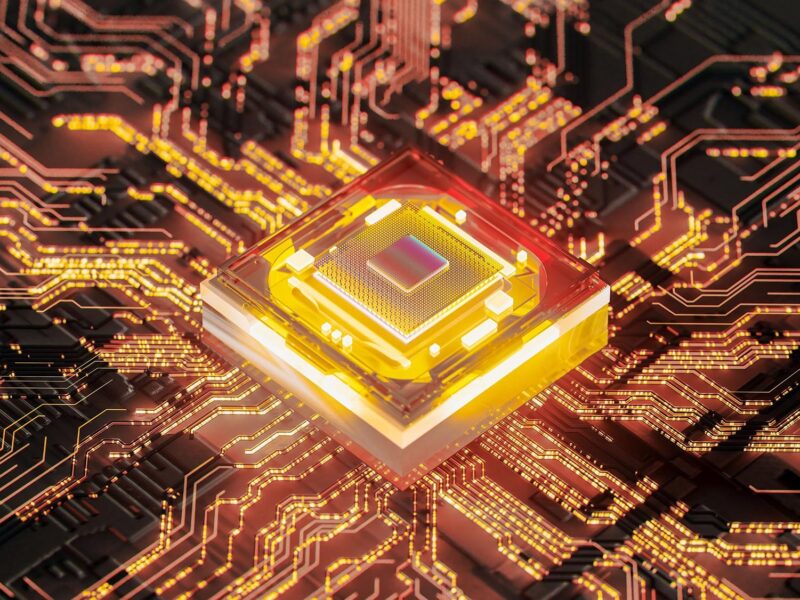
There are many methods and algorithms currently available that can secure data, and while they may seem practically unbreakable, one can never be too sure about cybersecurity.
Dr. Laszlo Kish, professor in the Department of Electrical and Computer Engineering at Texas A&M University, is founder of the idea of unconditional security using electronics and thermal noise. He studies the physics of electronics and computing.
“Unconditional security or ‘post-quantum cryptography’ is possible when a potential hacker can’t access any encrypted information despite having access to a quantum computer or even an infinitely fast computer, because the information is inaccessible in the signal,” said Kish. “The hacker can measure and record everything but the information does not exist—only random noise.”
Kish says software-based systems can offer only conditional security. Unconditional security requires the utilization of a relevant law of physics with the proper hardware.
The Kirchhoff-Law-Johnson-Noise
At its core, the Kirchhoff-Law-Johnson-Noise (KLJN) secure key exchange system is based on a few electronic components—identical resistor pairs, switches and interconnecting wires—that guarantee an unconditionally secure key exchange. The system is a sophisticated, low-cost and high-efficiency, statistical physical alternative to quantum key distribution systems.
KLJN is the only unconditionally secure system that can be integrated on a chip and can be put into a credit card. Recently, Kish published “The Kish Cypher,” a book about the system and its history.
“Interestingly, randomness or the ‘noise’ behind the quantum measurements is what makes data unconditionally secure,” said Kish. “Generally, the equipment for quantum communications is expensive. The KLJN system makes it about 100 to 1,000 times cheaper.”
Texas A&M Designated National Center Of Academic Excellence In Cyber Operations By NSA
Pushing the boundaries
Although he is a physicist by training, Kish has been studying the physical laws and rules governing the field of electronic devices, communications and computing. He leads the Fluctuation and Noise Exploitation Laboratory at Texas A&M and is interested in unidentified and unsolved problems and technical applications of physical random noises. He is also the founder of Noise-based Logic, Fluctuation-Enhanced Sensing and several other noise-based theories.
Kish serves as an honorary editor for Fluctuation and Noise Letters, an interdisciplinary scientific journal he established in 2001. The publication includes topics such as random processes in physical, biological and technological systems. He has honorary doctorates from Uppsala University in Sweden (2011) and the University of Szeged in Hungary (2012), and is a distinguished visiting professor at Hunan University in China (2015-2018).
Kish is currently collaborating with international researchers on various research problems. One of the problems focuses on the noise in supercapacitors, an emerging topic in electrical device technology. A supercapacitor has voltage and current noises that carry information about its lifetime and the quality of the technology.
Gdansk connections
Kish is collaborating with Dr. Janusz Smulko, vice president for research and department head of metrology and electronics at Gdansk University of Technology in Poland, on his supercapacitors research.
In fact his association with Smulko goes way back. In 2003, Smulko—then a young faculty member at Gdansk—visited the Texas A&M campus for six months and studied fluctuation-enhanced gas sensing with thin films and commercial gas sensors in Kish’s lab.
Smulko will chair the 2018 meeting of the Unsolved Problems of Noise International Conference series that Kish launched in 1996. The conference provides a forum for researchers working on different fields of understanding noise and fluctuations and their technical applications.
Last month, Kish received a medal from Gdansk University of Technology for his contributions in the field of noise and collaboration with the Polish university’s faculty and students.
###
This story by Shraddha Sankhe originally appeared on the College of Engineering website.



